Living in Israel During Operation Protection Edge
- Details
- Written by: Sarah Schuman
- Hits: 5746
 I will start off by saying that I am not writing this piece as a journalist. I am writing this personal commentary to share what I have seen since I moved to Jerusalem last year to pursue a career in photojournalism. As you are all aware, there is a war occurring here in Israel, which the Israeli's call "Operation Protective Edge". It began on July 8, 2014, but for me it really started when three teens, Naftali Frenkel, Eyal Yifrah, and Gilad Sha'ar, were kidnapped on June 12, 2014.
I will start off by saying that I am not writing this piece as a journalist. I am writing this personal commentary to share what I have seen since I moved to Jerusalem last year to pursue a career in photojournalism. As you are all aware, there is a war occurring here in Israel, which the Israeli's call "Operation Protective Edge". It began on July 8, 2014, but for me it really started when three teens, Naftali Frenkel, Eyal Yifrah, and Gilad Sha'ar, were kidnapped on June 12, 2014.
When the three boys were first kidnapped, I, like many others, believed that they would come back alive. For 18 days people from all over the world were coming together and praying for the safe return of these three innocent teenagers. Jews from many backgrounds came together to pray that these boys would return home. The night we heard the news that the boys had been killed, I was celebrating my birthday with a group of friends. What started off as a joyous celebration with laughter, tons of food, and confetti --that I'm still finding around my house -- came to a sudden halt. The music and chatter stopped immediately. Everyone was silent and the environment became rather eerie. No one wanted to break the silence, as it seemed wrong. For 18 days these boys were on our minds and the hope that they would be reunited with their families kept us strong. But then we found out they were not only kidnapped, but also murdered. Although we didn't know it at the time, it was Hamas that was responsible for the killing of these three harmless teenage boys.
What happened next was tragic. An innocent Muslim boy, Mohammed Abu Khdeir, was murdered in retaliation. This is when the violence, by the Muslim population, started in the Jerusalem streets. It was dangerous to go downtown due to the rioting. Everyone became very cautious about where they walked and which buses they took. A short time later, the war officially began.
Living in Jerusalem, I have not heard the sirens that go off in the south. These alarms, or alerts that Hamas has fired a rocket at Israel, have gone off multiple times a day every single day for the past month south of here. I have been lucky that I've only heard it a few times. The first time I heard the siren I was terrified. I was sitting on the couch eating a bowl of cereal after a long day. I was enjoying the peace and quiet in my apartment when all of a sudden I heard a loud noise overhead. I froze as my only previous experience with the sirens took place last summer during a military drill. I could hear people outside running into their homes and closing their doors as they knew they had only 90 seconds to find cover after the siren goes off. I jumped off the couch and ran into my roommate's room, as her room is the "safe room" in the apartment, and quickly closed the door behind me. I started to shake as I attempted to close the window and shut the doors. I was alone, curled up on the floor shaking, and worrying that the rocket would hit somewhere close by. I prayed that everyone would be okay. 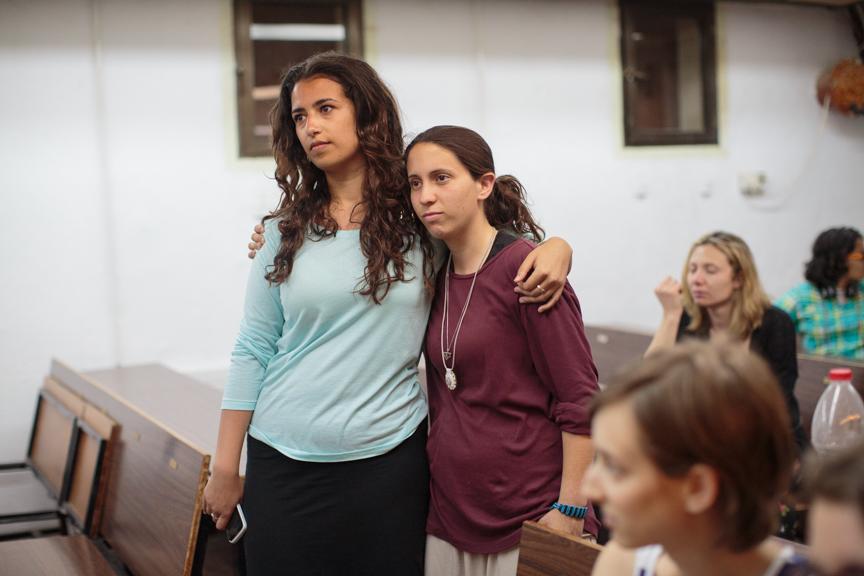
The Iron Dome is Israel's defense system and has been preventing many of the rockets from hitting civilians. The first time I heard the Iron Dome, I was in a park with a friend where we took her cousins to play. We heard loud booms in the distance, and we knew that meant that a missile had been fired at us. We were far away from the attack, so the sirens did not go off. My friend and I gathered her cousins as we were scared that there would be more rockets and that the siren might go off. We wanted to make sure that we were back in the house and not in an open space if they hit. Now when I hear the Iron Dome I don't get nervous. I view it as a sign that a rocket has been intercepted and that no one is hurt.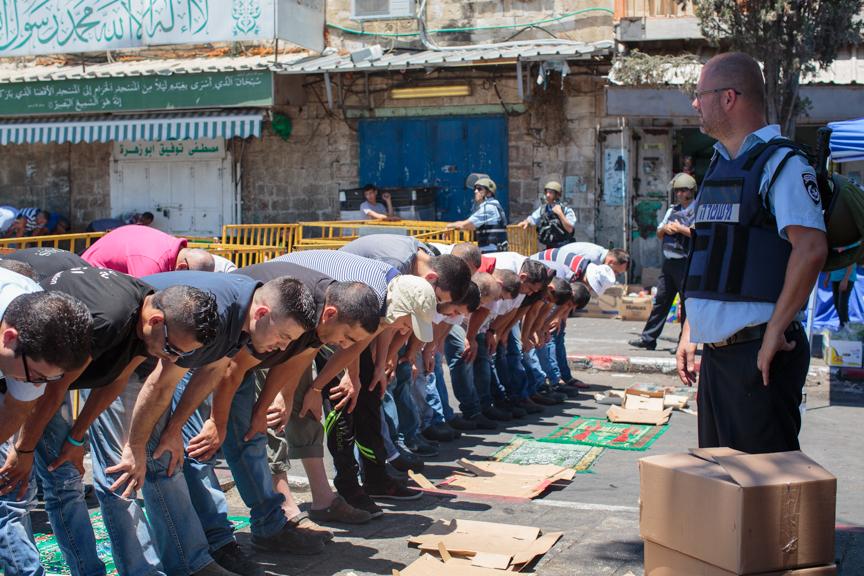
All my conversations with American family and friends since the conflict began have been quite similar. Everyone asked me if I was okay and told me to come back to New York. Some even told me to call, email, or text them at the end of everyday to make sure I was still breathing. My mom called every few days to check in and offered advice on how to stay safe. She told me to avoid buses and take taxis instead. What she doesn't know is that the buses are much safer than the taxis, as many taxis have Muslim drivers, so there have been a few attempted kidnappings. Friends in Jerusalem and around Israel called each other frequently to check in. I spoke to some friends daily to make sure we had all made it home at night. Each night I felt a nervous tinge in the pit of my stomach until I knew that all was well.
For the past month, the war has constantly been on our minds. In the beginning, whenever I had a free moment, I would check my phone for updates. But now we are all accustomed to living through this sad time. What started out as a frightening experience has become a way of life.
Reading the papers here, it is difficult to identify what really happened and separate personal agendas from news reporting. But I do know that recently, both Hamas and Israel have been observing a ceasefire while negotiations are taking place in Egypt. The tension in the air has slightly eased. The situation for Israelis as well as for the people living in Gaza is terrible. Both sides have suffered tremendously and one cannot compare whose suffering is greater. I do hope that this will all be over soon and that those who have been directly affected by the fighting can start to piece their lives back together.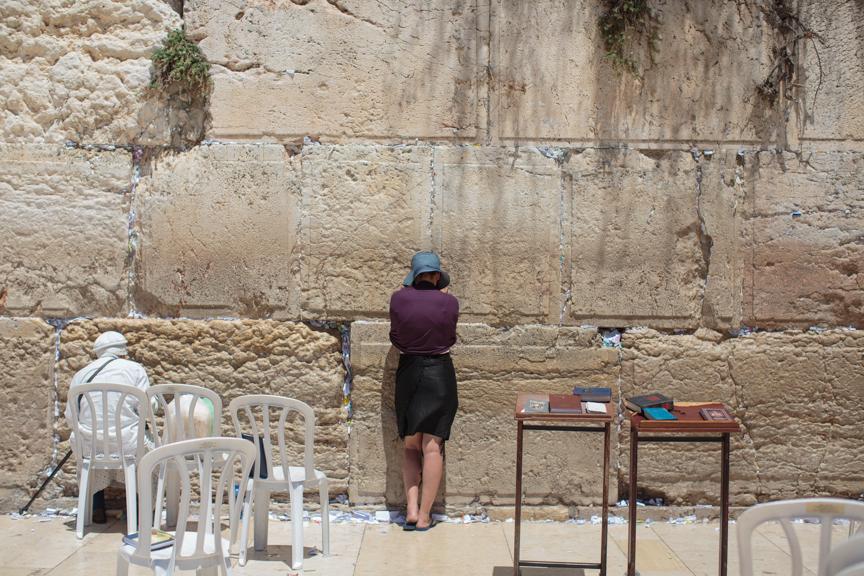
Photos and text by Sarah Schuman. See more of Sarah's photos at www.sarahschuman.com and email her at: [email protected].
Fly With WIZO (Women's International Zionist Organization)
- Details
- Written by: Joanne Wallenstein
- Hits: 3951
Support Israel and get an amazing workout at Flybarre in Scarsdale on Sunday August 10th, when WIZO Westchester (Women's International Zionist Organization) presents Flying for Israel. The event will support Israel at this critical time.
The event will be held on Sunday August 10th, at 11:30 am at Flybarre, 828 Scarsdale Avenue, Scarsdale.
CLICK HERE T0 SIGN UP or call Sarit at 212-751-6461.
________________________________________________________
WIZO, The Women's International Zionist Organization, is a worldwide non-profit organization that operates over 800 social welfare projects in Israel. Next to the Israeli government, WIZO is one of the largest providers of social welfare services. WIZO improves the lives of women, children and the elderly living in Israel.
Junior League Recruitment Coffees
- Details
- Written by: Joanne Wallenstein
- Hits: 4251
 The Junior League of Central Westchester (JLCW) invites women living or working in Eastchester, Greenburgh, Scarsdale and White Plains to its semi-annual "Recruiting Coffees" at historic Wayside Cottage on Thursday, September 18, 2014, 8pm and Friday, September 19, 9:30am. Joining the JLCW provides opportunities for volunteers to impact their community in a meaningful way and foster life-long friendships and professional relationships with fellow volunteers and members of the community in which they serve. RSVP to [email protected] by September 17.
The Junior League of Central Westchester (JLCW) invites women living or working in Eastchester, Greenburgh, Scarsdale and White Plains to its semi-annual "Recruiting Coffees" at historic Wayside Cottage on Thursday, September 18, 2014, 8pm and Friday, September 19, 9:30am. Joining the JLCW provides opportunities for volunteers to impact their community in a meaningful way and foster life-long friendships and professional relationships with fellow volunteers and members of the community in which they serve. RSVP to [email protected] by September 17.
Junior League of Central Westchester Informational Coffees
Thursday, September 18, 2014, 8pm and Friday, September 19, 2014, 9:30am
Wayside Cottage
1039 Post Rd, Scarsdale, NY 10583
(914) 723-6130
jlcentralwestchester.org
Free
Goodbye Old House, Hello New House
- Details
- Written by: Jamie Kayam
- Hits: 8411
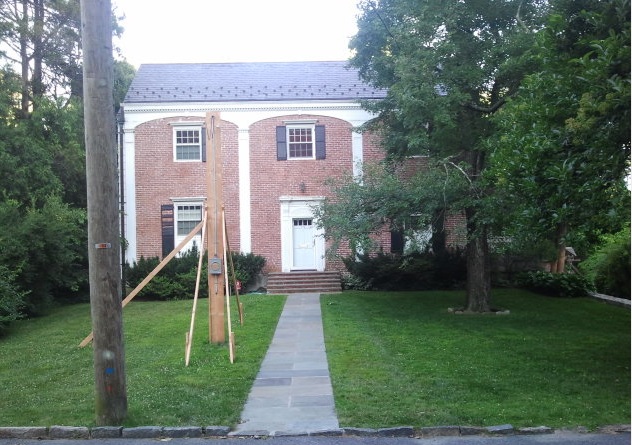 Does it seem like more houses are getting demolished in Scarsdale than usual? Ever wonder what the process entails, who's swinging the proverbial wrecking ball and who's designing the new homes built in their place?
Does it seem like more houses are getting demolished in Scarsdale than usual? Ever wonder what the process entails, who's swinging the proverbial wrecking ball and who's designing the new homes built in their place?
There can be some very good reasons to replace an older home. It's fairly common for age-related wear and tear to bring a property's value and attraction down, prompting developers and enterprising buyers to invest in new house construction, and smaller homes on larger lots can offer the potential of untapped value. Sometimes a current owner may just want a new house.
The details on this subject can seem endless, so to start, this article focuses mostly on the process of building a new home in Scarsdale. We hope it offers some clarifying perspectives for our neighbors.
Risk and Reward
Right now, the real estate market in Scarsdale is hot. Many listings move into contract fast and every month there are new homes scheduled for construction. But that wasn't always the case; the economics of turning a dime can get tricky:
One particular project in Greenacres took a developer nearly six years to conclude; a property was purchased and demolished in 2006 for $1,181,000 million, built new and listed for sale in 2010 at $3,150,000 and stood vacant until it sold in late 2012 for $2,235,000. Holding the house for six years cost about $210k in property taxes, and the reduced price was $915k less than the intended sale price. That would have left a balance of $844k to develop the property. If new construction cost 700k, that would leave a profit of $144k — over a six year period that's about $24k per year.
Yet developers continue to see dollar signs all over our town. In June this year a listed property in Heathcote was aggressively bid on by multiple parties, and in just 2 weeks went to contract above asking price — by a developer. The buyer stated he intends to keep his new purchase as a rental home for clients while he completes multiple other projects in Scarsdale.
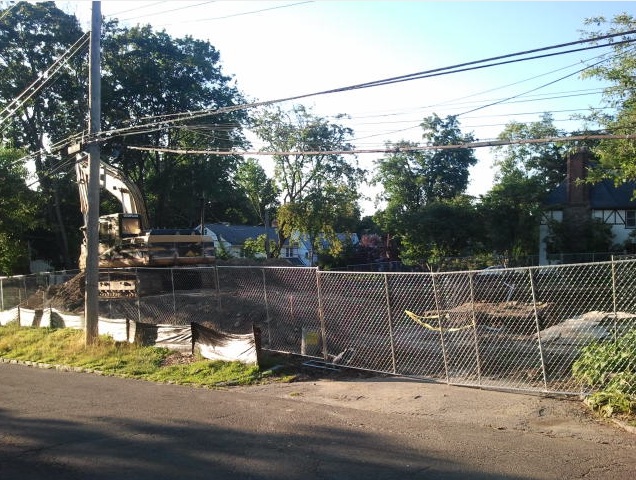 Demolition to Construction
Demolition to Construction
What does it take to get a new house built? I spoke with Liz Marrinan, Scarsdale's Village Planner, to get a broad overview of the entire process. Here are the simplified steps from demolition to new construction:
- Submit an application for demolition to the Committee of Historic Preservation (CHP). The CHP is tasked with reviewing all demolition requests that involve over 50% of a structure. A review is conducted of a home's historical significance and can potentially be denied a permit for a tear down. But, if approved, start polishing your wrecking ball!
- Hold on, there are a few exceptions — in some cases, the Planning Board must conduct a review of your application as well. They'll get involved if your property is located on designated wetlands or is one of Scarsdale's rare flag lots (these are houses located behind other houses with long driveways).
- Submit your new home designs to the Board of Architectural Reviews (BAR). The BAR requires that new construction plans are submitted by a licensed architect, and will be reviewed for aesthetic qualities and adherence to design regulations. Once approved, it's time to proceed to step 4, but don't worry, the BAR will meet with you again for landscaping design before you can move in.
- Submit your plans to the Building Department and the Engineering Department. First, Engineering will need to review and approve your plans for a stormwater permit, and then a building permit can be issued.
- Congratulations, you may now pass Go! But hold on, your project will be subjected to multiple inspections by the Building Department as you progress. So make sure you run a tight ship and comply with all regulations.
House Design 
One of the most intimate aspects of new home construction involves presenting the design for approval.
I spoke with Jack Scott Miller, Chairman of Scarsdale's Board of Architectural Review, to get some additional insight into how the BAR conducts the process.
For full disclosure, please note that I'm an alternative member of the BAR (an active substitute), so I sometimes sit on the BAR and assist in conducting design reviews.
Jack referred me to the BAR's official mandate, which states: "The purpose of this chapter to preserve and promote the character and appearances and conserve the property values of the village."
The BAR tries its best to hold the line on quality designs as changes in the architectural landscape persist, but developers and property owners are tenaciously lobbying for what they want as well.
A huge part of BAR public hearings are neighbor's concerns. Residents often appear at meetings in groups, prepared to express their opposition to proposed projects. Complaints range from home designs being too large and driveways too long to new designs that contrast with the theme of a particular block and driveways that meet the road too close to other existing driveways.
Neighbors also bring complaints about rainwater running off from new home sites onto their properties, resulting in flooding issues, but that concern is dealt with by the Engineering Department.
Building Permit and Inspections:
To gain better insight into the actual process of building a new house, I reached out to Scarsdale's Building Department Director, Nunzio Pietrosanti. We discussed some of his experiences and concerns as new projects come into his office for oversight.
Under ideal circumstances, a project application is processed in about four weeks if all paperwork is in order and there's a minimum backlog of submissions at the office. Sometimes processing can take up to eight weeks. The Building Department tries to work closely with everyone who's submitting a project, and I found Nunzio's openness to be a reflection of the department's efforts to be accessible and user-friendly.
There are typically two types of entities who come to the department to get a project started; property developers who bring years of experience navigating the process and individual property owners trying their hand at house building for the first time. Applications with errors can get rejected, so if you're going it alone, consulting with professionals and taking the time to study village regulations can help expedite a complicated process.
The Building Department has a busy schedule. The process of inspecting a new house as it's being constructed can require up to 15 on-site inspections over a period of about a year, and there are currently 2 inspectors on staff to accommodate all reviews. Larger houses can take even longer.
Inspections range from analyzing foundations and load-bearing structures to plumbing and natural gas lines, as well as coordination with Con Edison for electrical lines, and conformity to approved design specifications. Additionally, the Engineering Department gets involved in the inspection of storm drain installations, as well as approving soil erosion and sediment control measures in order to issue a stormwater permit.
It's a delicate dance between developers, inspectors and third-party specialists all trying to meet deadlines and expectations of safety and quality.
Ready to move in?
In addition to all of the professionals employed by the village, there's also the team that's going to actually build your new house.
If you've ever marveled at how complicated a small bathroom renovation can get, just imagine the details involved with a house. And don't forget to include the bathrooms.
To start, you'll need a land surveyor, architect, foreman, foundation builder, craftsmen, bricklayers and masons, plumbers, electricians, roofers, asphalt pavers, and you're definitely going to need a landscape designer. Which direction will your house face, how will the sun shine on it? Solar panels or geothermal heating, or both? How many zones for the central A/C and radiators? Lighting fixtures, faucets, door knobs, dumpsters, port-a-potties, marble or granite — can we move in yet?
The details can seem endless, and there's an enormous amount of talent and skill involved. Considering it all, it's impressive to watch these houses go up in just one year.
Federal Monitor for Affordable Housing Settlement Calls to Depose Astorino
- Details
- Written by: Joanne Wallenstein
- Hits: 9195
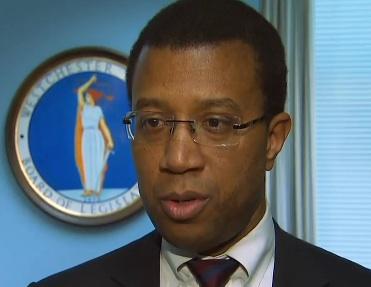 Federal Monitor James Johnson, the New York attorney charged with overseeing the implementation of the Fair and Affordable Housing settlement in Westchester, is now calling for Westchester County Executive Robert Astorino and his staff to be deposed in court. Stating that Astorino and his team "have made statements that have confused the public, misstated the terms of the Settlement and signaled ongoing defiance of its terms.," Johnson is asking for the deposition to focus on "the County Executive's public statements and the areas of non- or partial compliance."
Federal Monitor James Johnson, the New York attorney charged with overseeing the implementation of the Fair and Affordable Housing settlement in Westchester, is now calling for Westchester County Executive Robert Astorino and his staff to be deposed in court. Stating that Astorino and his team "have made statements that have confused the public, misstated the terms of the Settlement and signaled ongoing defiance of its terms.," Johnson is asking for the deposition to focus on "the County Executive's public statements and the areas of non- or partial compliance."
Johnson's order came as part of his second biennial assessment of the County's compliance to the 2009 decision that prescribed a far-reaching plan to "expand opportunities for African Americans and Hispanics to live in integrated communities in Westchester."
Some of the County Executive's misstatements cited in the report include the following:
- Astorino's assertion that the Monitor was attempting to impose a new requirement of 10,768 rather than 750 units with allocations of hundreds of units to specific communities.
- County Executive's claim that the cost of the settlement could exceed one billiion dollars.
- Statement that HUD intends to build six-story high rises.
The 73-page report analyzes all progress on the settlement and charges Astorino with misrepresenting the  terms of the court order and deliberately confusing the public. Though he credits the County with making progress in constructing the required housing units, Johnson says Westchester has failed to meet many of the other stipulations. Johnson charges the County Executive with attempting to reduce the terms of the settlement to the construction of units while ignoring the mandate to educate the public, to conduct an advertising campaign and outreach effort and to produce an acceptable review of local zoning codes that impede fair housing.
terms of the court order and deliberately confusing the public. Though he credits the County with making progress in constructing the required housing units, Johnson says Westchester has failed to meet many of the other stipulations. Johnson charges the County Executive with attempting to reduce the terms of the settlement to the construction of units while ignoring the mandate to educate the public, to conduct an advertising campaign and outreach effort and to produce an acceptable review of local zoning codes that impede fair housing.
The Settlement called for the County to conduct an analysis of certain restrictive zoning practices in the 31eligible communities, to specify a strategy to overcome exclusionary zoning practices and to identify the types of zoning practices that would, if not remedied, require the County to pursue legal action. Though the County submitted multiple analyses, none found evidence of exclusionary zoning. Johnson calls the multiple analyses that were submitted "deficient" and said the County "had failed to fulfill it's duty," as they did not examine the question of race as an obstacle to the development of affordable housing.
After several analyses were rejected by HUD, Johnson retained independent housing consultants to review the data and according to the biennial report in March 2013 the consultants "concluded that seven of the 31 municipalities eligible under the Settlement (Harrison, Lewisboro, Mamaroneck, Ossining, Pelham Manor and Pund Ridge) had zoning ordinances that limited affordable housing or made the development of affordable housing practically infeasible." Astorino responded by holding a press conference in which he claimed that the Monitor was changing the terms of the settlement and could require the County to build 10,678 units rather than the 750 stipulated by the court.
HUD has punished the County by withholding more than $12 million in funds earmarked for Westchester municipalities, and more could withhold another $5.2mm if the impasse continues. In an effort to produce an acceptable analysis (A-1) and secure funds due to the County, the Westchester County Board of Legislators has now stepped in and suggested that the Monitor oversee the analysis.
Astorino has rejected the Board's move to work with the Monitor saying that Johnson is advocating "rewriting the terms of the Settlement," and "giving HUD unprecedented power to dismantle local zoning." He said HUD would strip local governments of Home Rule, and "replace the zoning analysis" done by the County (which after eight reviews found no evidence of exclusionary zoning based on race or ethnicity) with its own reports and conclusions." The County Executive is holding fast to his contention that there is no evidence of exclusionary zoning based on race or ethnicity.
 Though Astorino thinks Johnson is over-reaching, the Anti-Discrimination Center that brought the original lawsuit against the County feels that Johnson's report does not go far enough. They call the report a "masterpiece of misdirection" and want the County to be charged with contempt. In an opinion piece on their website they say, "On the basis of evidence clear to all, the Monitor ought to have been asking the Court to hold Westchester in contempt for its brazen and ongoing violations of the Consent Decree."
Though Astorino thinks Johnson is over-reaching, the Anti-Discrimination Center that brought the original lawsuit against the County feels that Johnson's report does not go far enough. They call the report a "masterpiece of misdirection" and want the County to be charged with contempt. In an opinion piece on their website they say, "On the basis of evidence clear to all, the Monitor ought to have been asking the Court to hold Westchester in contempt for its brazen and ongoing violations of the Consent Decree."
Now that Astorino is vying to be the Republican candidate for Governor of New York State, the Settlement is bound to become an issue in the race. Though some in Westchester believe the County Executive is defending their right to local zoning control, statewide voters could view his defiance and failure to seek compromise as a problem with his leadership skills. Strapped for funds, neither the County nor the State can afford to turn away federal grants, and voters outside the County may look upon this case as black mark, not as a credit to Astorino's resume. The history of the Settlement is a complex issue that upstate voters may not take the time to thoroughly analyze. Instead they might focus on the bottom line – which is that Westchester County now stands to lose almost $20 million in HUD funds if the issues cannot be resolved.











